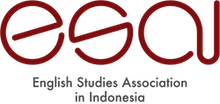Indonesian Translation of Cultural Words in ‘The Book of Lost Things’
DOI:
https://doi.org/10.30996/anaphora.v7i1.7102Keywords:
ranslation techniques, cultural words, descriptive qualitativeAbstract
Cultural differences between Indonesian and English can cause problems in translation. In translating cultural words, various aspects should be considered with the aim of producing quality translations of cultural words. This research aims to discover cultural words and their categories, as well as translation techniques employed to translate them in the novel ‘The Book of Lost Things’. The method used in this research is a descriptive qualitative method. The sources of the data of this research are an English novel entitled ‘The Book of Lost Things’ written by John Connolly, and its translation version entitled ‘Kitab Tentang yang Telah Hilang’ translated by Tanti Lesmana. The results show that there are 104 data of cultural words, which are categorized into material culture (51), ecology (30), organizations, customs, activities, procedures, concepts (14), social culture (5), and habits and gestures (4). Moreover, there are 7 techniques employed, including established equivalent (69), pure borrowing (18), amplification (9), particularization (3), adaptation (2), generalization (2), and discursive creation (2). The most frequently found cultural words category is material culture (51). Besides that, the most frequently employed technique is established equivalent (69). Hence, the high number of "material culture" words highlights the challenge of translating tangible items with potential cultural significance. By understanding the categories of cultural words likely encountered and the effective translation techniques used, translators can make informed decisions to preserve the cultural essence of the original work for the Indonesian audience.
Downloads
Downloads
Published
How to Cite
Issue
Section
License
Authors whose manuscript is published will approve the following provisions:
-
The right to publication of all journal material published on the jurnal anaphora website is held by the editorial board with the author's knowledge (moral rights remain the property of the author).
-
The formal legal provisions for access to digital articles of this electronic journal are subject to the terms of the Creative Commons Attribution-ShareAlike (CC BY-SA) license, which means Jurnal Persona reserves the right to store, modify the format, administer in database, maintain and publish articles without requesting permission from the Author as long as it keeps the Author's name as the owner of Copyright.
-
Printed and electronic published manuscripts are open access for educational, research and library purposes. In addition to these objectives, the editorial board shall not be liable for violations of copyright law.














